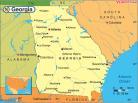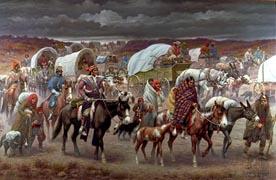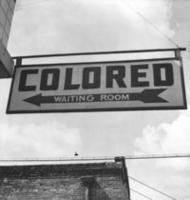Wednesday, August 31, 2005
Tolerance of Intolerance
Is it consistent for the tolerant to be intolerant of the intolerant? In my view, there is no inconsistency as long as you are not advocating or engaging in coercion to impose your views on others. For example, the religious right wants to discriminate against homosexuals, some even to the point of legislating against homosexual behavior. Many of those tolerant of homosexuality want homosexuals to have the freedom to pursue happiness and engage in homosexual behaviors all they want, some even to the point of legislating against some forms of discrimination against homosexuals. Both the homosexuals and those who hate them are rightly and understandably opposed to the application of coercion against them.
But this is not what my illiberal conspecifics seem to be whining about. They are unhappy that their illiberal views have become unpopular. In the marketplace of ideas, homosexual bashing is becoming marginalized, even stigmatized in some quarters. It is not enough for them that their right to hold these illiberal views and to express them has been preserved and is not, as far as I can tell, endangered; rather, they want these views to be respected and not to feel embarrassed about them in polite society.
I recognize your right to be homosexual and live a homosexual lifestyle and your right to hate homosexuals or homosexuality and express this hatred. I tolerate both views to this extent, but I am intolerant of any coercion in furtherance of either view. I also happen to disagree with the haters of homosexuals and do not hold their views in high esteem. They seem more than a little weird to me, to be frank. Then again, I am attracted to libertarianism in part because of my preference for privacy and my feeling that folks should mind their own business. It's hard to imagine a libertarian busybody.
Libertarians embrace the free market, and I think that this includes a free market in ideas. Ideas compete in this market and are not equally valued. Everyone runs the risk that his views will become unpopular or even taboo.
Tuesday, August 30, 2005
Cholesterol
I think my mistake was having the test taken so close to my return from a week long visit to Georgia where I ate biscuits and gravy, fried chicken, barbecue and good southern cooking for ever
 y meal.
y meal. 

I am hoping that I will return to a better level on my next test. Meanwhile, I am going on a different medication and am going to try something radical- diet and exercise and less alcohol intake.
I need to take this seriously. My father started having his heart attacks when he was not much older than I am now, and he now has a debribrilator/pacemaker installed in his chest to keep him going. If his heart rate gets too slow, it jolts him back to life with a sensation that the old man likens to "being kicked by a mule". He is only 70 years old and otherwise healthy, but the damaged heart thing really puts a cramp in his style.
His brother is a marathon runner whom I secretly call "Uncle Zero Percent Body Fat". A youthful 67 years old and in fabulous shape, he has to take statins lest his cholesterol get over 300. The difference between my uncle with his good heart and my dad with his bad heart may well be the statins. I would hate to think that my uncle's exercise and healthy diet made that much of a difference.
Trading Locally
 d values.
d values.
If I want all the lovely farms in Dutchess County to stay in business instead of sproutin g crops of McMansions, I should buy meat and other produce from the farmers whenever I can. If I want to be secure about my food supply and its quality, I should buy from folks nearby about whose practices I can be fairly knowledgeable. I have recently committed to buying all my meat from local producers, and I trade face to face with the farmers. I pay a little more, but the product is vastly better and less likely to be diseased, and I enjoy the existence value of the farm. The tomatoes and vegetables from the farmers
g crops of McMansions, I should buy meat and other produce from the farmers whenever I can. If I want to be secure about my food supply and its quality, I should buy from folks nearby about whose practices I can be fairly knowledgeable. I have recently committed to buying all my meat from local producers, and I trade face to face with the farmers. I pay a little more, but the product is vastly better and less likely to be diseased, and I enjoy the existence value of the farm. The tomatoes and vegetables from the farmers  market and acquaintances' gardens are far better than anything in the supermarket and worth any extra cost. If I want the picturesque vineyards and wineries to stay in business, I should buy as much of my wine requirements as I can from the locals. It is pretty good wine and not more expensive than wine of comparable quality.
market and acquaintances' gardens are far better than anything in the supermarket and worth any extra cost. If I want the picturesque vineyards and wineries to stay in business, I should buy as much of my wine requirements as I can from the locals. It is pretty good wine and not more expensive than wine of comparable quality.
I don't know of any hardware manufacturers in the area, but I do know that I would rather buy dry goods and hardware from my locally owned and operated  hardware store than from any of the big box Homeowner Hells, especially the Home Despot. The local guy has a smaller selection and sometimes charges more on some items, but he has employees who can help me and who can get me checked out in the same day.
hardware store than from any of the big box Homeowner Hells, especially the Home Despot. The local guy has a smaller selection and sometimes charges more on some items, but he has employees who can help me and who can get me checked out in the same day.
And I love towns with vibrant main streets. If I want to keep businesses (other than pawn shops, probation offices, soup kitchens, and thrift stores) alive in main street, I had better trade there.
It's a little more work to shop, but it becomes a social occasion and I feel engaged with the community. I also enjoy at least the illusion that I am making a difference and helping preserve what is good about Dutchess County. If enough of us do this, we will maintain a viable and livable community.
Monday, August 29, 2005
Persecution Complex
I talk about religion all the time, and I find that most folks are interested in religious views and respectful of the religions of others. Politicians spout off all the time about religion, and the vast majority of public officials profess to be Christians. In fact, you just about have to claim to be Christian to get ahead in politics in America.
I just don't see a lot of persecution of or discrimination against Christians in America. What I do see is criticism of folks who claim to be Christian when they say or do asinine or evil things and try to justify it with religion. My wingnut conspecifics feel persecuted, not because of Christianity, but because they are ashamed of some of their other embarrassing viewpoints that they have tried to cloak in spirituality.
Pat Robertson declares a fatwa on Hugo Chavez and the Supreme Court and is rightly denounced. Homophobic nutbars protest soldiers' funerals and claim the soldiers were killed by God in retaliation for American tolerance of homosexuals, and these idiots are properly denounced. Pat Robertson and Jerry Falwell say the same thing about the attacks on the World Trade Center, and bulls**t is rightly called. Self proclaimed religious leaders advocate hatred and oppression of homosexuals, uppity women, racial minorities, nonChristians, and a host of other folks, and they get called on it. So-called Christians advocate war, murder and tyranny in the name of the Lord, and they get called on it. This is not part of any war on Christianity; it is a war on ignorance and hypocrisy.
If you claim to be speaking and acting as a Christian, you can expect your utterances and actions to be judged in the light of the teachings of Jesus Christ. One ought to be ashamed of trying to tie Jesus to any kind of hatred, to war, to other murder, to theft, or to tyranny. One should certainly be expected to be called on it. It is not a question of being "politically correct"; it is a question of being religiously correct.
Seatbelt Tyrants
Good thing all the real crime has been prevented so that cops have the time and resources for seatbelt checks.
Now I learn from Wally Conger (http://wconger.blogspot.com/2005/08/click-it-or-die.html) that cops have, in fact, killed some poor soul who had a warrant for a seatbelt violation. My kindergarten teacher would never have killed me for violating the mitten and galoshes rules. I feel a lot more queasy about the cops than ever.
Is the Military Community Representative of the Civilian Community?
A military community is like any other community. Since they draw on the civilian community for their population, it couldn't be any other way. Forget all that hype about soldiers being "heroes," they are just like any other people. Some are great people and some are scum. Some are average and some are heroes. They just wear different clothing and have different jobs -- bring freedom to people whose freedoms have been lost.
- Children of the well to do may be less likely to sign up than those with fewer economic and educational opportunities.
- Southerners make up a disproportionate segment of the military population.
- It is said, although I cannot say whether it is true, that the military is much more politically conservative than the civilian population.
- The military is skewed toward youth due to retirement requirements.
- The military is significantly more male than the civilian population.
- Christians will, of course, eschew military service as it is utterly incompatible with discipleship; therefore, the military will be largely devoid of moderating Christian influences. (The exception consists of those poor souls who were duped and recruited under the erroneous assumption that they would be "defending their country". )
- In addition to Christians, anyone else of any religion or other moral system having a scruple about homicide will be reluctant to volunteer for duty which could entail it. Accordingly, the military will necessarily be populated by people who believe that killing at the behest of government is permissible and appropriate.
- It follows that the military will be full of devoted statists and lacking in libertarians and anarchists. (Sadly, it is perhaps in this way that the military most closely resembles the population at large.)
Friday, August 26, 2005
Staying the Course

Some of my conspecifics have been infected with the "stay the course" meme-virus. Once proudly supportive of the war, they now can be heard to spout such nonsense as:
"It was right to start the war, but we went about it all wrong"
"Forget why we got there in the first place, we can't leave now or it will be a bloodbath/terrorist stronghold/bad message"
"Let's not dwell on the past, let's complete the mission."
The last one sounds almost plausible until I ask what the "mission" is. My conspecifics usually start to sputter and make vague comments such as "install a stable government", "wipe out Islamofascism" or "establish democracy". When I point out that the military is designed to destroy things and kill people, not accomplish the vague "missions" they postulate, my conspecifics have no retort.
Of course, my conspecifics want to forget the past and the fraudulent excuses for the war. Now they are left with nothing but to call for the US to keep on screwing up. After all, we spent all this money and got al these folks killed, and it would be embarassing to admit that we were wrong. "We" were not wrong. The criminal conspiracy in DC was wrong. My war supporting conspecifics were wrong. And they are still wrong.
What really stumps my conspecifics is when I try to tap into their empathy, such as it is. I ask them to imagine that another country decided that George "Not as Bad as Hitler" Bush was a menace and that the US needed regime change. This country invades and occupies the US, deposes the government, and blows a lot of things up and kills a lot of people. An insurgency that my conspecifics might well join has the occupiers pinned down and bleeding men and money out the wazoo. The "puppet government" is allying itself with the occupiers enemies. None of the strategic aims of the occupiers is being served by the occupation. Would they want the occupiers to "stay the course"? Would the occupiers be well served by "staying the course"?
The only reason to stay the course is for George "Not as Bad as Stalin" Bush to avoid accepting any responsibility for his evildoing. He should have done that 12 step program and learned to take responsibility and atone for the harm he does.
Thursday, August 25, 2005
Carpet Capital of the World
 Tufting party circa 1935
Tufting party circa 1935In my hometown of Dalton, GA, a cottage industry in chenille bedspreads sprang up. The picture above features my great grandmother Barbara Baggett Dillard and some of my other kin working on tufting bedspreads out in the yard. This was mainly women's work, but men were sometimes involved. My grandfather, for example, created some original designs. One of his designs, a horse, covered my bed when I was a child, and I would give my right one to have that bedspread now. I would frame it as a work of art.
Entrepreneurs would provide the spreads and materials, and women would tuft them in their "spare" time when they were not working in the house or on the farm. This provided a source of cash to cash-poor farm families and helped them survive the Depression. Tufting was done by hand until about the 1940s when a local man invented a tufting machine. This technology is the foundation on which the multibillion dollar tufted textile industry was built. This is why Dalton is the "Carpet Capital of the Known Universe".
The entrepreneurs would put machines in homes where women would tuft even more spreads than before. Up until the opening of I-75 in the late 1960s, a lot of these spreads were sold in roadside souvenir stands along Highway 41. The signature peacock design was quite popular with Yankee tourists in transit to and from Florida.
In the late 1940s, "spread houses" sprang up where workers, again mainly women, came together to tuft spreads under one roof. This gave women a source of steady income if they wanted it. Many women worked sporadically when they could consistent with their other obligations at home and on the farm.
By the 1960s, carpet production and ancillary industries (dye houses, backers, tufters, foamers, etc.) had outpaced spread houses in importance. Men had begun to work in factories in larger numbers and outnumbered women in carpet factories. Farming became less profitable for small holders, and many men opted to enter the wage labor market in lieu of farming full time. By the 1970s, farming was virtually a thing of the past in Whitfield County. Much of the production was handled in stages by different small companies. One company would dye the material, another would tuft the yarn into backing, another would finish the product, another would sell it, and another would truck it. Entry into the market was easy, and entrepreneurship was common. My first job at age 13 was with a man who took scrap carpet, cut it into stair treads and sold them in packages. With little investment, he became quite rich.
More recently, there has been some consolidation in the industry with Shaw Industries, a Berkshire Hathaway holding, and other companies handling almost the full scope of production and much of distribution in-house. The trend over time has been for centralization, more vertical hierarchies and control, and less stake for the workers in the process. The tradition of local ownership and investment has given way to outside ownership. Just when workers were in a position to make some demands for higher wages and benefits, thousands of immigrants from Mexico were recruited to live and work in Dalton. The next step will probably be to move the whole industry to a third world country.
The industrialization of Dalton brought considerable prosperity to the town, but the trajectory toward centralization and top down control has made Dalton more vulnerable to a bust. More horizontal organization meant that no single company or combine of companies could pull up stakes or dictate terms to the community. Workers could make the various companies compete for their labor, whereas now fewer large employers call the shots. Daltonians used to be independent spirited and creative; now they seem like any other population of wage slaving schmendricks.
This consolidation process seems to happen often in industry, and it sometimes has an air of inevitability about it. Is there some inherent advantage to a centralized structure that drives out decentralized alternatives? I am genuinely confused by this phenomenon since I have found in some other industries that outsourcing and more horizontal structures can give companies a competitive edge.
Wednesday, August 24, 2005
I Would Rather Some of the Troops Didn't Come Home

Listening to Morning Sedition as I do every morning commute down the Taconic Parkway, I learned to my horror that a US soldier convicted of torturing beating an innocent Afghan cab driver detainee slowly to death over four days has been sentenced to two months in prison, loss of rank and an "other than honorable" discharge. His accomplice didn't get any prison time at all. The message: murder someone horribly, go to jail (maybe), for up to two whole months. What a deterrent that will be to any other homicidal sadists in the service of the USG.
In a couple of months, these evil and dangerous men will be free to return to the US and live among us. And unlike in the case of sex offenders, there is no registry of sadistic murderers to keep us informed of their identity and whereabouts. I don't advocate the government's setting up such a registry, but I would be happy if some concerned fellow citizens took it upon themselves to keep track of such monsters. I would donate money to support such an endeavor.
I wish these men would stay away, and I fear that they will come home and get jobs in law enforcement where their particular skills and disposition might be put to use.
Tuesday, August 23, 2005
States' Rights

I grew up in Georgia and was taught that American history ended in 1865 with the fall of the Confederacy. The original federal system was killed. It was disinterred and a stake was driven into its heart in the 20th century with increasing centralization of power in the federal government and the decreasing importance of the states. I grew up thinking of myself as a Georgian first and an American second. We were obliged in the government schools to take a year of Georgia history in the 8th grade and to demonstrate competence in the official history of our glorious state. I loved Georgia with all my heart.
I still love Georgia, but in a different, healthier way. I love the landscape and the people and my cultural heritage, but I think that the State of Georgia is nothing more than a criminal conspiracy. Libertarians and conservatives sometimes wax nostalgic about federalism, the former out of principle and the latter when it is convenient for them
 . (Conservatives support states if they outlaw gay marriage but call in the feds if a state legalizes medical marijuana.) I am not entirely convinced by the arguments for dispersing power to smaller units of government, and I have commented before about the tyranny of local government. Smaller government is still government with all the attendant evils, and a smaller government may have more of an interest in screwing with my life than a more remote ruler.
. (Conservatives support states if they outlaw gay marriage but call in the feds if a state legalizes medical marijuana.) I am not entirely convinced by the arguments for dispersing power to smaller units of government, and I have commented before about the tyranny of local government. Smaller government is still government with all the attendant evils, and a smaller government may have more of an interest in screwing with my life than a more remote ruler.Back to Georgia and why its government sucks. Georgia used its sovereignty to enforce the enslavement of thousands, hardly an argument for states' being more liberty loving than the central government.
 Georgia used its sovereignty to harass and dispossess the Cherokee people in violation of every standard of justice and morality and decency.
Georgia used its sovereignty to harass and dispossess the Cherokee people in violation of every standard of justice and morality and decency.  What libertarian defense of these crimes can be advanced?
What libertarian defense of these crimes can be advanced?
Georgia used its sovereignty to segregate and discriminate against its subjects of African descent. Today, Georgia taxes and regulates its subjects mercilessly and exercises every power it can. If the federal government relinquished a power, Georgia would surely take it up with a vengeance. 
Before anyone claims I am picking on Georgia, let me state that I have no regard for my adopted state of New York's government, either.
I question whether I would be better off if federalism were observed.
Monday, August 22, 2005
Grass Fed Beef and Free Range Pork

Since my diatribe about tasteless meat some time ago, I took some steps to research whether there were any local producers of free range, grass and forage fed livestock. Last weekend I went to the farmers' market in Millbrook and bought some fabulous animal flesh from a member of the Hudson Valley Livestock Marketers Cooperative. For about what we would have paid for good cuts of crappy meat in a supermarket, we came away with some rib eye steaks and an enormous sirloin. We also bought a smoked ham (he was out of other cuts of pork until the next slaughtering in September) and a free range chicken.
We cooked the steaks medium rare over charcoal, the rib eyes on Saturday and the sirloin on Sunday. Ordinarily, we buy only tenderloin because other cuts are practically inedible, but these grass fed cuts exceeded any filet mignon we have ever had in texture and flavor. That's right, these steaks had flavor, something I thought had been lost from beef forever. The meat was tender but with a full grained texture. The flavor was complex and wonderful and sped like a shot to the pleasure centers of our brains. I can never enjoy any other kind of beef again, because I have been reminded of what beef can taste like if it is properly raised.
We heated up the ham and tried a taste. Mrs Vache Folle remarked that she had never tasted this meat, since she had never had any free range pork in her whole life. I grew up eating it and had almost forgotten the joy of it. It all came back to me in the first luscious bite. No nitrates, no other preservatives, just ham the way the good Lord intended it to taste (apologies to Iceberg). The texture of the meat was more natural than store-bought ham and quite a bit more lean without being tough. It tastes nothing like store-bought, factory-farm produced pork. Like the beef, it has flavor. I want dibs on the next pig and plan to lay up a supply for the winter. Mrs Vache Folle does not yet know that I am shopping on the web for a chest freezer to fill up with good
 meat.
meat.It was also fun to get out and see the quaint town of Millbrook. I liked getting meat and produce straight from the farmers. We also took a side trip to the Millbrook Vineyards and Winery and tasted their wines. We ended up buying a mixed case as it was quite good. The Cabernet Franc went very well with the steaks. We find that supporting local agriculture is quite enjoyable and we hope to find ways to do so even more, perhaps by getting involved in a community supported farm.
Friday, August 19, 2005
I Do Not Miss the Mainstream Media

On 3/28/05 I bid farewell to the mainstream media. I have faithfully avoided watching a single moment of network news, News Hour, CNN, Fox News, MSNBC, CNBC or any news "magazine" programs. I even gave up ESPN except for actual sporting events. I have caught a few moments of local newscasts just so I could get the weather updates and sports scores. The only new
 s shows I watch religiously is Jon Stewart's Daily Show and The Soup.
s shows I watch religiously is Jon Stewart's Daily Show and The Soup.Today, it hit me that I am better informed now than I ever was when I let my mind be poisoned by the toxic drivel served up by the mainstream media. My main sources of news are the web (not mainstream media websites), bloggers, Air America radio, the New Yorker, Atlantic Monthly, and the occasional newspaper (nothing put out by Murdoch or Gannett). I have to work for my news, and I get a lot of viewpoints on it in contrast to what I might get from the media I have abandoned.
I was happy to announce today at lunch that I did not know about the latest outrage touted by lying windbag Bill O'Reilly, some case in Florida, and that I was blissfully uninformed about some missing girl in Aruba or any of the other "prole feed" dished out to my benighted conspecifics. I was far better informed than they were, however, by the atrocity committed on the subway by the thug cops in London, the state of the economy, and the war in Iraq. I knew a lot more about the credentials and activities of the Supreme Court nominee and about the political scene. The ignorance of my conspecifics, educated humans who attempt to keep informed, was appalling. They have mainstreammediadementia.
As a consumer of news on the web that is not prepackaged, that has not been sucked of all substance by the media, I feel as if I am more engaged with the world. I feel a little as if I am engaged in gossip over the cyberfence with my cyberneighbors. I have found a network of bloggers that I trust to help me digest the data and assign meaning to events, and I get to comment and share my views with other seekers.
I don't read the wingnut blogs or attend to the right wing smear machine, and I do not bother to take note of the pronouncements of the government. This is all too toxic for me to handle, but there are bloggers out there who keep track of all this for the rest of us and let us know what lunacy evil men and women can manifest. Best of all, a lot of them do it hilariously. Tbogg, World O'Crap and the whole Tbogg blogroll are apt to be sidesplittingly funny. We know what the evildoers and evilthinkers are saying, and we are prepared to deal with it thanks to these intrepid bloggers. They expose these frightening people for the frauds that they are.
I highly recommend the mainstream media fast to everyone who values his brain.

The Mud Theory

The latest New Yorker has a piece in which the "mud theory" of the origins of life is discussed. A number of origin myths include stories of humans made by deities from mud.
Intelligent Design isn't necessarily a mud theory, but it is probably little more than mud theory dressed up in scientific clothing. I doubt that an Intelligent Design theorist who posited a Designer named Vishnu would get much traction with the anti-evolution crowd in America. But what if you take ID's claims that it does not argue for a particular Designer at face value? If we adopt as our underlying metaphysical assumption a Designer or Designers, can we make inferences about them from their creations?
We know from observations of life that it all boils down to genetic material, DNA and RNA. The Designer apparently has one trick up its sleeve. We can infer that the Designer has been at work continuously for billions of years and that it continues to work on the DNA and RNA of living things this very second. The Designer either is very long lived, or there are multiple Designers. The Designer's work occurs simultaneously throughout the entire biosphere all the time; therefore, it is either omnipresent or vastly numerous, perhaps representing a Designer for every organism that ever lived.
The Designer is invisible to us and uncommunicative. The Designer may well be entirely impersonal.
The Designer apparently works through changes to DNA and RNA in interaction with the environment. These changes appear to be random as most of them result in the demise of the design. It appears that the Designer does not know the consequences of its tinkering with the genome and that it works entirely through trial and error. It does not appear to learn anything from this process, and if there are multiple Designers, they must not be well coordinated or they are actually not working together. The Designer makes the same errors over and over and takes numerous trials to get to an adaptation, if it ever does.
It follows that we can, for all practical and scientific purposes, disregard the existence of the Designer in devising models of how organisms adapt and evolve. We should, of course, keep our eyes open for any affirmative evidence of the Designer's handiwork.
Wednesday, August 17, 2005
Supporting the Troops
I am utterly opposed to the war, but I do not blame the troops for the war and wish them no harm. In fact, I regard it as support for the troops to advocate for their return home. It is not supportive of the soldiers to call for continued war and to advocate keeping them in harm's way for a moment longer. I suppose some soldiers may want to engage in more combat to advance their careers or for the adventure of the thing, and I do not support such individuals in this desire.
Having served in the armed forces, I realize that most of the soldiers and marines signed up because they were led to believe that they would be fighting to defend their country. This is especially true of the guard and reserve forces who probably never expected to be used in such an irresponsible manner. I was duped in my day, and I reckon the majority of the soldiers and marines in Iraq are dupes as well. Young and foolish and looking for adventure, we took the king's shilling and signed on for God knows what. We f****d up; we trusted the state. I can't blame them for this, and I reckon a lot of them are getting a big dose of disillusionment right now. I hope they live to apply it to making this a better country when they get home.
Do I "support" the troops? I pray for them every day to come home soon safely and to survive with their souls intact. I don't sport a ribbon on my car or anything, and I have never sent a care package. I advocate every day for peace, and I think that I have influenced a handful of people in my circle to oppose the war and call for the troops to come home.
Those who claim that you must support the war to support the troops are just exploiting, not supporting, the troops.
The Relative Value of American Lives


Which life is more valuable, the unidentified American on the left or the Iraqi child on the right?
I am saddened and angry that over 1800 American servicemembers have been killed in Iraq. Thousands of others have been maimed. It is sickening that uncounted thousands of Iraqi people have been killed or maimed in this unjust war. I have read that perhaps 100,000 civilans have lost their lives, but it does not appear that the military keeps track of "collateral damage". When I talk to my pro-war conspecifics, they are pretty cavalier about Iraqi civilian deaths and would even support a more brutal policy no matter how many Iraqis died. These are otherwise nice people, but they do not seem to recognize the worth of non-Americans as human beings. As one man put it, he would rather see 1,000 Iraqis die to prevent the death of one American soldier or marine. Of course, the USG could bring the soldiers home such that a moral dilemma of that nature need never present itself.
Am I supposed to regard the life of an American more highly than the life of an Iraqi or other nationality? I just can't seem to do it. Nationality is a category that one falls into largely as an accident of birth, and my fellow Americans have done nothing special to merit my particular affection simply because they are subjects of the same government thugs as I am. I sympathize with them and probably have a lot more in common with many of them than I would with someone from a distant land, but I don't know more than about 1,000 people personally. The rest are no less strangers to me than the Iraqis. I didn't choose to be an American; I was born in Tenneessee and have been labeled an American as a consequence. My ancestors wanted to secede from the US but were coerced into remaining subjects of the gang in Washington, DC.
I don't see the Iraqi people as a threat to my life or liberty, and I have no cause for complaint against any Iraqi. In contrast, many of my fellow Americans, including the nice folks around the water cooler at the office, seem to be looking to tax me more, to have me surveilled more, to have my liberties increasingly curtailed. They are much more of a threat to me because they make these bizarre claims on me based on my being an American.
I don't owe you anything special simply because you are an American. I am obliged by my faith to love my fellow man, and last time I looked nationality was not a qualifier of this obligation. An American life is not more valuable to me than the life of someone of another nationality unless the American happens to be a kinsman or an acquaintance or someone I admire. Just about any Iraqi child is a damn sight more lovable than Dick Cheney.
When I say things like this, my conspecifics inevitably come back with the "why don't you leave" argument. This makes no sense at all to me. Wherever I go, some state will claim me as a subject against my will.
Tuesday, August 16, 2005
Jesse Lou Baggett

Our Ruthenian Shepherd has an unusual history. Back in 1999, I was doing field work in Barbados when Mrs Vache Folle wrote me that she had been encountering a feral dog in the park. I tried to reach her for several days for fear that she would adopt this dog as we already had three dogs. At the time we had the mixed breed hound littermates Cassidy and Sundance and a blue eyed red dog, our emergency back up dog, Trudy. When the Mrs walked these dogs in the park, the feral dog would join her on her walks. He was about 6 months old at the time.
My fears were unfounded since the feral dog would not even let anyone pet him, let alone domesticate him, and I still had only three dogs when I returned home that autumn. I met him immediately as he inevitably showed up when I walked the girls or fired up the barbecue. He was a scrawny black dog of about 50 pounds with brown socks and brown Rottweiler eyebrows. His body type was Alsatian. He was a good looking, dignified dog, and he got along well with our alpha dog Cassidy, aka "the bitch queen from hell". He befriended Bob, the sexagenarian owner of Princess, a ball obsessed shepherd mix, who spent lots of time in the park, probably to stay away from his shrewish girlfriend. He waited outside Bob's apartment every morning and raced Bob's car to the park. Bob was almost always the first dog owner in the park in the morning.
The dog became known throughout the Bryn Mawr neighborhood in Yonkers and had lots of friends who fed him. His bad habits were limited to stealing baseballs from Little League games and harassing Simba the Husky, his nemesis. He always thwarted the dog catcher. Folks to the north of the park called him Pal. To the south he was Hobo, and to the west, where we lived, he was called Jesse.
Jesse made the rounds of our neighborhood every day looking to be fed. The Mrs fed him, and if he could not find anything better he would eat in our driveway. Our neighbor often provided lamb and Greek food; another provided Italian food; yet another featured rather elaborate concoctions of meat and cheese and leftover cold cuts from a family deli.
Jesse began to show up at our house at our usual dog walk times to join the girls. Then he started showing up and barking at the door to be "walked" by Mrs Vache Folle. He lived on a walk as far as I was concerned, but he loved for Mrs Vache Folle to go on a stroll with him every evening without the other dogs. In winter, Mrs Vache Folle set up bedding in the back porch of the house. This was sheltered from the elements, and Jesse slept there almost every night. Mrs Vache Folle kept the bedding clean and dry, and she decided, over my objection, to try to domesticate the fellow. She caught him a couple of times, but he became almost catatonic with fear and dismay when we brought him in the house. When we walked him he "pulled a Ghandi" at the farthest point from the house and had to be released.
Ae some point, Jesse began to let Bob pet him and leash him up to keep him away from Simba. We arranged for a mobile vet to come to the park and give him vaccinations and a check-up. Gradually, Jesse began to trust us more and more and more or less lived on our porch. The neighbors started feeding him in our driveway, and I would come home to some pretty delicious looking offerings every day. I became resigned to the idea that he would eventually become our dog.
One day in 2001, Jesse was hit by a car, and he dragged himself over 7 blocks to our house. Bob saw the whole thing and followed him. I took Jesse to our vet where he got treatment over several days. We had him castrated when he recovered enough and brought him home as our dog. He was too injured to fight about it at this point and seemed to appreciate the comforts of indoor life. Cassidy allowed him about 30 square feet in the living room as his assigned space, and he never left this without a human escort for several months.
Early on, we acclimated Jesse to the car by taking him to fun places. Within a couple of months of taking him in we took him to my mother's farm in Georgia. He loved the road trip, and he really took to the cattle. He spent every moment he could with the cows , and he bonded with us and the girls. He did not (and to this day does not) like the open riser stairs in the motel in Virginia on the way home and had to be carried up them. Otherwise, he was right away a wonderful non-feral dog and has been ever since, except for dog aggression issues.
We named him Jesse Lou Baggett after my great great grandfather so we could refer to him in his presence as Mr Baggett without alerting him to the use of his name. Now he loves his comforts, and it is hard to imagine that he was ever feral. The girls are all dead now, and Jesse is Alpha.
Why do we call Jesse a Ruthenian Shepherd even though he is a mutt of indeterminate breed? He has a habit of carrying his food to a private place and used to try to take bowls of dog food up the stairs. The food would fly out of the bowl, and Jesse would be left with an inexplicably (to him) bowl at the top of the stairs. I began to call him a "Polish Shepherd" as an ethnic dig at Mrs Vache Folle (all in love, of course). We later learned that some of Mrs Vache Folle's ancestors were Ruthenian, an ethnic group now in Poland related to Ukrainians, so Jesse became a Ruthenian Shepherd, sometimes known as a "Carpathian". This is fun to pull on people who are impressed with purebred dogs.
Friday, August 12, 2005
Political Anabaptism

I always check James Leroy Wilson's blog first thing. Today, he has yet another post that I keep ruminating over http://independentcountry.blogspot.com/2005/08/pessimistic-confused-paranoid.html and that hits me intellectually and emotionally. James owns
 up to being "pessimistic, confused and paranoid" and sets out some of the reasons. I feel the same way, and sometimes it is frustrating to imagine that liberty lovers will never realize our dream of a free society or even come close. Perhaps the best we can hope for is to colonize the sea or space (assuming the statists don't hunt us down).
up to being "pessimistic, confused and paranoid" and sets out some of the reasons. I feel the same way, and sometimes it is frustrating to imagine that liberty lovers will never realize our dream of a free society or even come close. Perhaps the best we can hope for is to colonize the sea or space (assuming the statists don't hunt us down).For my part, I cling, perhaps psychotically, to the hope of creating a free society right here in the midst of the statist world. Just as the Kingdom of God is all around us and we do not see it, let's try to realize the Kingdom of Liberty (could they be the same Kingdom?) right under the nose of the state. Let us live our ideology insofar as we can, ignore the state as much as possible, and create alternative institutions and networks to meet our needs and draw us to together. Let our lives be our testimony to freedom.
I have begun to think of myself as a kind of political Anabaptist, and I think that the central tenets of Anabaptism could be applied to libertarians trying to live out their libertarianism in an unfree world.
Simplicity- If we live simply, we are less dependent on the state and state-corporate interests. We are more mobile. We will tend to trade more locally with people we know and meet face to face. We will tend to engage in more countereconomic activity. We will be less likely to be implicated in fraud and coercion or to be tied up with the state.
Separation from the world- We must live "in" the statist world but we need not be "of" it. We can create and work within institutions and networks that compete with or are indifferent to the state. We must grant the state no legitimacy at all, recognizing that it is prudent to render unto Caesar what Caesar will take from us by force in any event. It is up to us to problematize the conventional wisdom and ideas that sustain the state.
Peacefulness- We must renounce force and fraud, except in defense. In that spirit, we will not willingly serve the state or take our neighbors before the courts. We will not support unjust war. We should strive to instill shame in anyone who delights in or promotes unjustified violence or fraud.
Adult baptism- The sense of this in the religious context is that each believer must choose for himself as an individual to follow Christ. Neither your family nor your community can make this choice for you. This is analogous to the libertarian position of individual sovereignty. We must recognize the right of our neighbors to make free choices and tolerate those choices whether we like them or not. This does not mean that we cannot be discriminating, but we must never let our distaste for individual choices to tempt us to use or advocate force against the choosers.
The Kingdom of Liberty will never be imposed and will be realized, if it ever will be, only through the transformation of the hearts and minds of men, one by one. It is not enough to talk and write about freedom in the abstract, we must try to live it and set an example to the world. This is hard work but not without its satisfactions, and I know that I fall way short of my ideals. Am I a lunatic dreamer? Probably. But like the main character in The Life of Pi, I think that a world where I can do something to work toward a free society makes a "better story" than the world where it is hopeless.






















